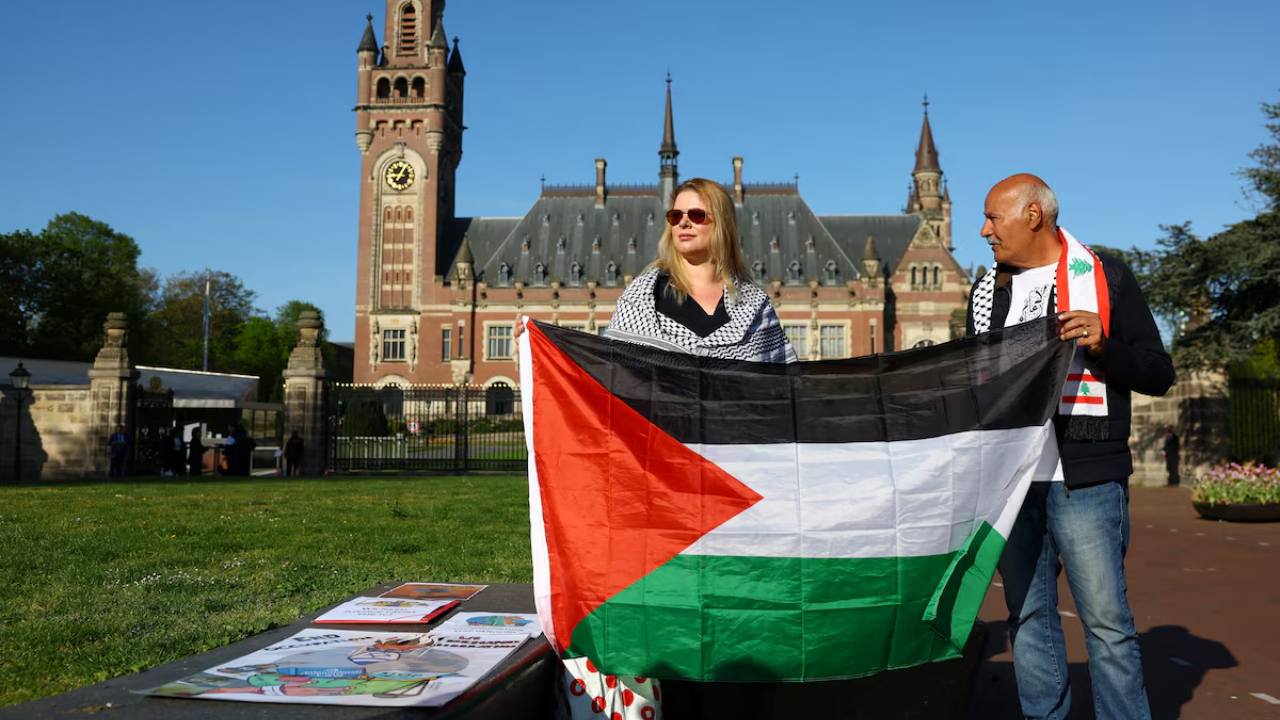Israel will face accusations of violating international law for blocking aid to the Gaza Strip when multiple nations present their arguments at the International Court of Justice (ICJ) in The Hague.
The hearings will begin on Monday and are expected to last a week. Since March 2, Israel has halted all supplies to Gaza, affecting the 2.3 million residents. Food that was stockpiled during a ceasefire earlier in the year is nearly depleted.
In December, the U.N.’s top court was tasked with forming an advisory opinion on Israel’s obligations to allow aid to Palestinians, which is provided by various countries and international groups, including the U.N. Israel has stated that it will not allow goods and supplies into Gaza until Palestinian militant group Hamas releases all remaining hostages.
Germany, France, and Britain called on Israel last week to follow international law and allow the free passage of humanitarian aid into Gaza.
This followed Israel’s stance that no aid would enter Gaza as a form of pressure on Hamas. U.S. President Donald Trump on Friday said he had urged Israeli Prime Minister Benjamin Netanyahu to allow food and medicine into Gaza to help the people there.
Israel has accused Hamas of hijacking humanitarian aid meant for Gaza, though Hamas denies these accusations and blames Israel for the shortages in supplies.
In December, a resolution passed by 137 of the 193 U.N. General Assembly nations urged Israel to uphold its obligations toward the Palestinian people, expressing deep concern over the worsening humanitarian situation.
Israel, along with the U.S. and 10 other countries, opposed the resolution, while 22 countries abstained from voting.
Representatives from the Palestinian territories will speak first at the hearings on Monday. Israel will not be among the roughly 40 nations presenting their arguments during the five days of hearings, with the U.S. offering its perspective on Wednesday.
Although ICJ advisory opinions carry legal and political weight, they are not binding, and the court has no power to enforce them.
The U.N. considers Gaza and the West Bank to be under Israeli occupation, and international humanitarian law requires the occupying power to facilitate relief programs, ensuring that people have access to food, medical care, and proper hygiene and public-health standards.
The World Court is expected to take several months to reach its final opinion after the hearings.
Disclaimer- Our team has thoroughly fact-checked this article to ensure its accuracy and maintain its credibility. We are committed to providing honest and reliable content for our readers.






